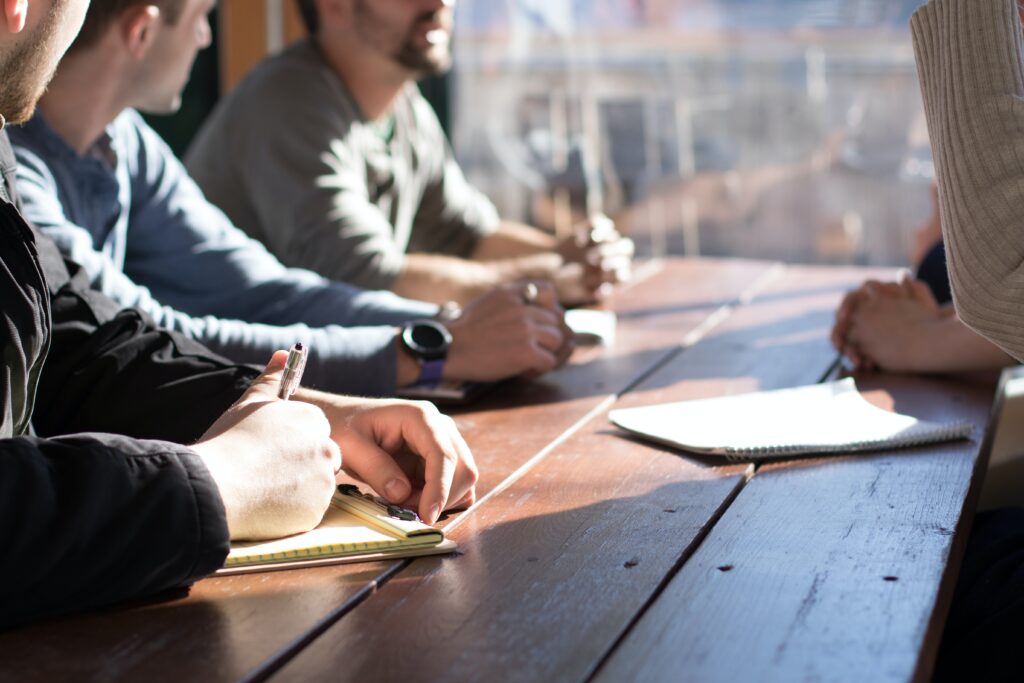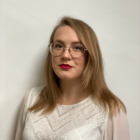The road to KoneKtor: Philanthropy East Forum

So, it has finally taken place. The much awaited and anticipated (first ever!) KoneKtor – Philanthropy East Forum, held in September in Warsaw.
Some may be surprised by our continuous description of the Forum as “the first ever”. Understandable, as the Grantmakers East has been around for almost as long as I have been alive. However, if one knew the process that has taken place during the pandemic, its general impact on the sector, and therefore the work of this thematic collaborative, it may not be as surprising.
After joining Philea (then EFC) and the Thematic Collaborations Team, I was quickly introduced to this dynamic group. While the Steering Committee of (then) GEF seemed both happy to see each other and interested in continuing the conversations, there was a clear lack of energy coming across in the Zoom meeting room. The pandemic had impacted the annual 2-day Forum ‒ the main activity of the group ‒ for two years in a row. Questions of its strategic goals and contents, but mainly its role, had been raised since the disruption of Covid.
Impressively, the Steering Committee did not sit on its hands, awaiting a post-Covid reality, but took the opportunity to go through a strategic renewal process together with the (then) EFC secretariat and consultant Barry Knight. With the birth of Philea, the Network had a unique opportunity to imagine its role within the larger umbrella of the association, but also the community. What this process revealed was that the network is valued extremely highly by the community ‒ the region plays a crucial role which wider Europe can and should learn from ‒ and that there was a true longing for more opportunities to connect as a community around common issues and interests. With its value reassured, the Steering Committee regained energy, and found new ways to plan its work and impact, which all came to fruition in a new name following the Philea Forum in Barcelona ‒ KoneKtor.
Now, why did I mention this story? Mainly to illustrate the long road for this thematic collaborative to arrive at the Philanthropy East Forum in Warsaw in September. The planning, organisation of sessions and coordinating with speakers, was of course a huge effort on the part of the Committee. However, the labour to arrive at this point with a new Forum and as a renewed collaborative is just as, if not more, impressive to me as the coordinator of this group. I am in constant awe of their commitment to the region and the community.
To bring us back to September… The Philanthropy East Forum kicked off with a celebration of the collaborative’s 25th anniversary, perfectly setting the tone for the coming days, together with both old and new friends. The two-day Forum offered a packed programme for over 130 participants, with 12 parallel sessions, dealing with issues from Community resilience during the refugee crisis, to Transforming violent cultures into peaceful ones in the realm of education, Digital activism and how to connect needs on the ground for Rebuilding Ukraine.
The impressive group of high-level speakers, all from different backgrounds and sectors, spoke and engaged with the audience in a set of interactive formats, as the KoneKtor Steering Committee moderated the majority of the sessions. Together, we reflected upon the resilience of civil society in times of crises, all from very varying perspectives. We looked into the resilience of individuals, touching upon struggles and well-being. We also spoke on community resilience and management, sharing best practices of people coming together to fight for democratic values that are under attack. The keynote speakers, Gerald Knaus and Ewa Kulik-Bielinska, opened the last day with a panel discussion on Democracy in the light of war, where they captivated the audience by advocating for philanthropy’s role in achieving long-term and sustainable goals. Ewa spoke about the need to convince politicians to stop giving short-term solutions to the grave issues we face, and Gerald of how the political climate within the EU has changed and how Ukraine could approach its candidacy. I believe I speak for many participants, when I say that this was a great finish after the first day’s intense programme.
When asked about my biggest takeaways during the last day’s feedback session, I had issues formulating these. I realised once the Forum was over that this had been due to being overwhelmed. Because what had struck me the most during the days in Warsaw was not only the wide range of participants, but also the passion of the people attending. This region and sector are unique when it comes to the energy and dynamic of the people. The room was buzzing with exchanges on best practices for supporting CSOs in times of uncertainty; collaborations of activists and their struggles; and sharing insights into human rights situations and the political climate in the region. It was truly a pleasure to see the community come together, after all this time, and display how and why collaboration leads to endurance and resilience during times of unpredictability. So, if someone would ask me one more time what my biggest takeaway is, it is pride and hope. Proud of the team and Steering Committee for pulling this fantastic programme together, and hope for sustainability, as collaboration, networking and alliances have a great role to play. There truly is power in numbers…
Authors

